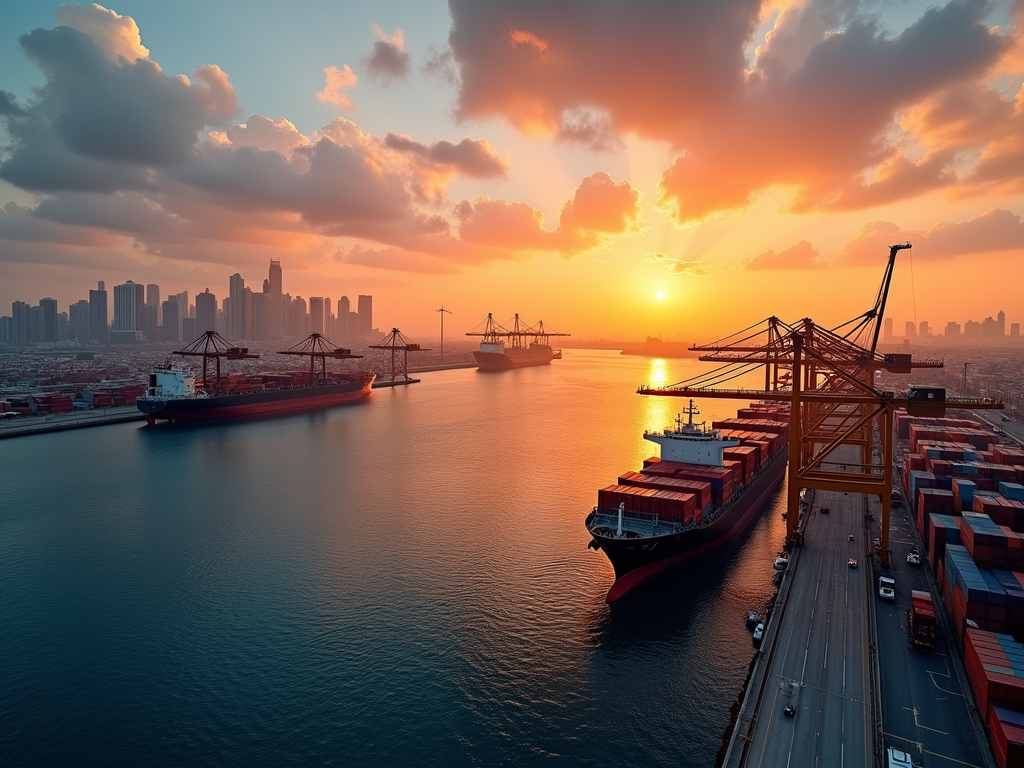Dubai has emerged as a pivotal hub in the landscape of global trade, serving as a beacon for business opportunities across various sectors. Its strategic geographic location, advanced infrastructural development, and favorable trade regulations have positioned it as a gateway between the East and West. This article explores the mechanisms through which Dubai influences global trade and the unique business advantages it offers to entrepreneurs and multinational corporations alike. By delving into its logistics, economic policies, and innovations, we can better understand how Dubai is sculpting the future of international commerce.
The Strategic Geographic Advantage

One of the fundamental aspects contributing to Dubai’s prominence in global trade is its strategic geographic location. Nestled between Europe, Asia, and Africa, Dubai provides unparalleled access to several markets. This ideal placement facilitates efficient transportation and communication channels for businesses aiming to expand their reach. The proximity to major shipping routes and air corridors allows for expedited logistics, fostering rapid trade exchanges. Additionally, the city’s well-established ports, such as Jebel Ali, play an instrumental role in accommodating large volumes of shipping traffic, enhancing its appeal to importers and exporters alike.
The logistics infrastructure in Dubai is characterized by several key factors that bolster its status as a global trade center:
- World-Class Airports: Dubai International Airport is among the busiest in the world, providing exceptional connectivity.
- Cutting-Edge Ports: Jebel Ali Port is the largest in the region, equipped to handle the largest cargo vessels and ensuring swifter processing times.
- Free Trade Zones: Numerous free zones allow businesses to operate with zero taxes on personal and corporate income, encouraging foreign investment.
- Comprehensive Transport Network: An extensive road and rail network facilitates seamless movement of goods and people.
- Advanced Technology Integration: Utilization of AI and automation in logistics streamlines operations, reducing costs and time constraints.
Favorable Economic Policies and Regulations

Dubai’s economic landscape is further enriched by its business-friendly policies and regulatory frameworks. The government has implemented various initiatives to attract foreign direct investment (FDI), including the establishment of 100% foreign ownership in several sectors. This regulatory flexibility enhances the city’s appeal among businesses seeking to establish a presence in the Middle East. Moreover, Dubai offers a stable currency and a strong legal framework, instilling confidence in investors. The establishment of numerous free zones allows businesses to operate with ease, significantly reducing bureaucratic hurdles and fostering a conducive environment for entrepreneurship.
Innovation and Technology as Catalysts for Growth
Innovation is at the heart of Dubai’s strategy to enhance its global trade standing. The city has invested heavily in technology, seeking to transform into a smart city that utilizes data and analytics for improved decision-making processes. Key initiatives, such as the Dubai Blockchain Strategy, aim to streamline governmental operations and reduce administrative costs, making it easier for businesses to thrive. Furthermore, sectors like e-commerce are experiencing rapid growth thanks to a tech-savvy population and increased internet penetration. Startups and established firms alike are capitalizing on these technological advancements, creating new marketplaces and redefining trade approaches.
Tourism and Global Events as Trade Catalysts
The tourism industry in Dubai plays a vital role in shaping its trade environment. Hosting numerous global events, such as Expo 2020 and international trade fairs, attracts businesses and investors from around the world. These events serve as platforms for companies to showcase their products and services, fostering networking opportunities and potential collaborations. As millions flock to Dubai for leisure and business travel, local businesses experience increased demand, contributing to an enriched trade ecosystem. This influx also enhances the hospitality sector, leading to further investments in infrastructure and services.
Conclusion
In summary, Dubai’s strategic geographic location, favorable economic policies, and commitment to innovation combine to create a thriving environment for global trade and business opportunities. By continuously evolving and adapting to market demands, Dubai establishes itself as a critical player in the global economy. It not only facilitates trade between nations but also serves as a launchpad for businesses seeking to expand their influence on an international scale. As we look ahead, Dubai’s growing role in the world of commerce promises to enhance connectivity and foster collaborative economic growth well into the future.
Frequently Asked Questions
1. Why is Dubai considered a global trade hub?
Dubai is regarded as a global trade hub due to its strategic location, advanced logistics infrastructure, and favorable economic policies, making it a prime gateway for international business.
2. What are free trade zones in Dubai?
Free trade zones in Dubai are designated areas where businesses can operate with 100% foreign ownership, tax exemptions, and minimal bureaucracy, encouraging foreign investment.
3. How does tourism impact Dubai’s trade?
Tourism boosts Dubai’s trade by attracting global visitors for events and leisure, generating demand for local businesses and services, thus enhancing economic growth.
4. What innovations are being implemented in Dubai to enhance trade?
Innovations such as the Dubai Blockchain Strategy and smart city initiatives aim to streamline operations, reduce costs, and improve efficiency in trade and commerce.
5. How can businesses benefit from operating in Dubai?
Businesses benefit from Dubai’s strategic location, tax advantages, robust infrastructure, and access to diverse markets, creating numerous opportunities for growth and expansion.



